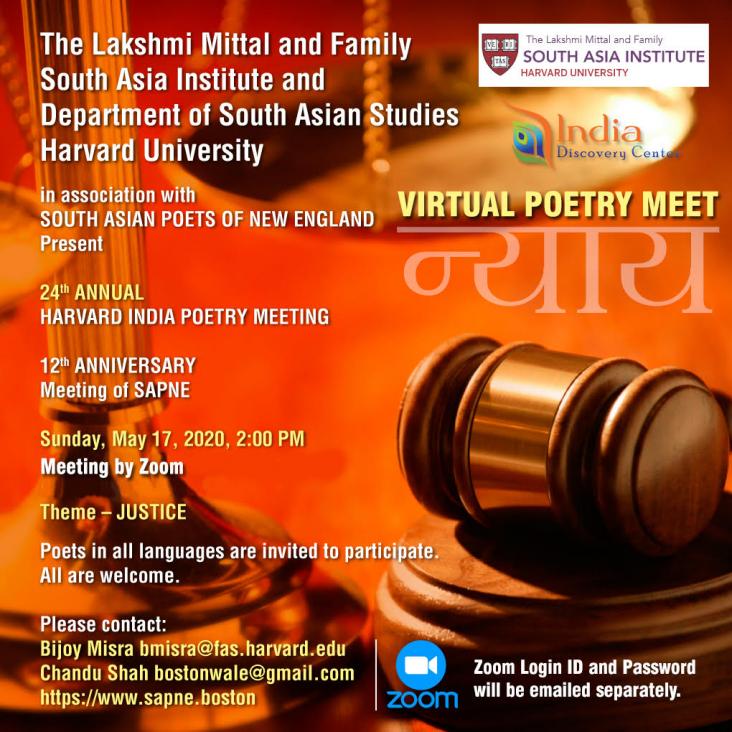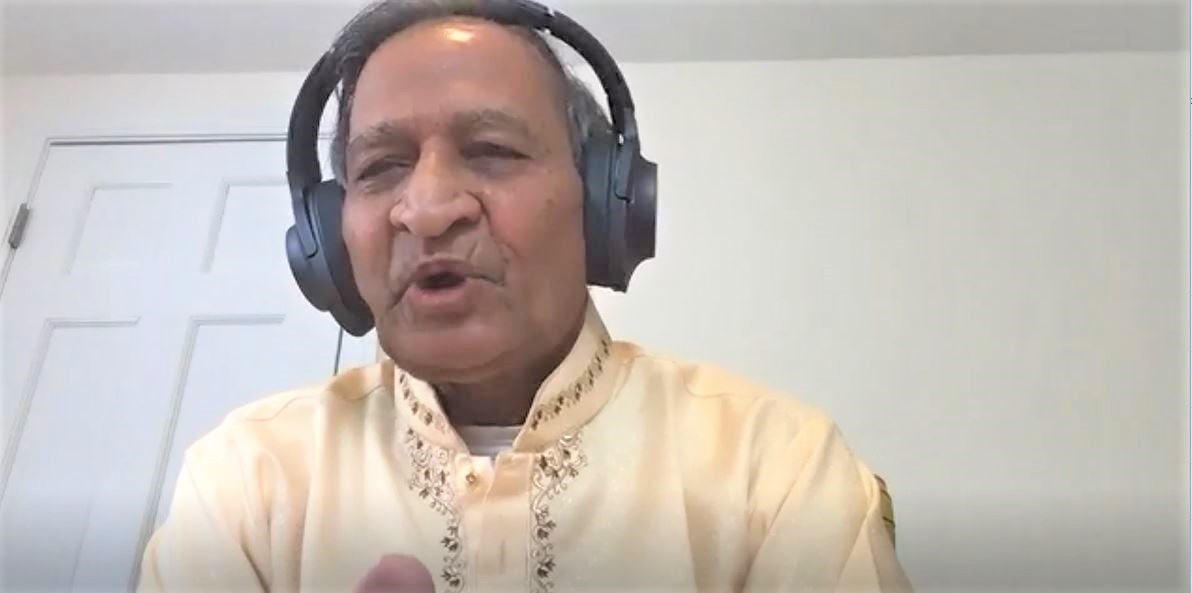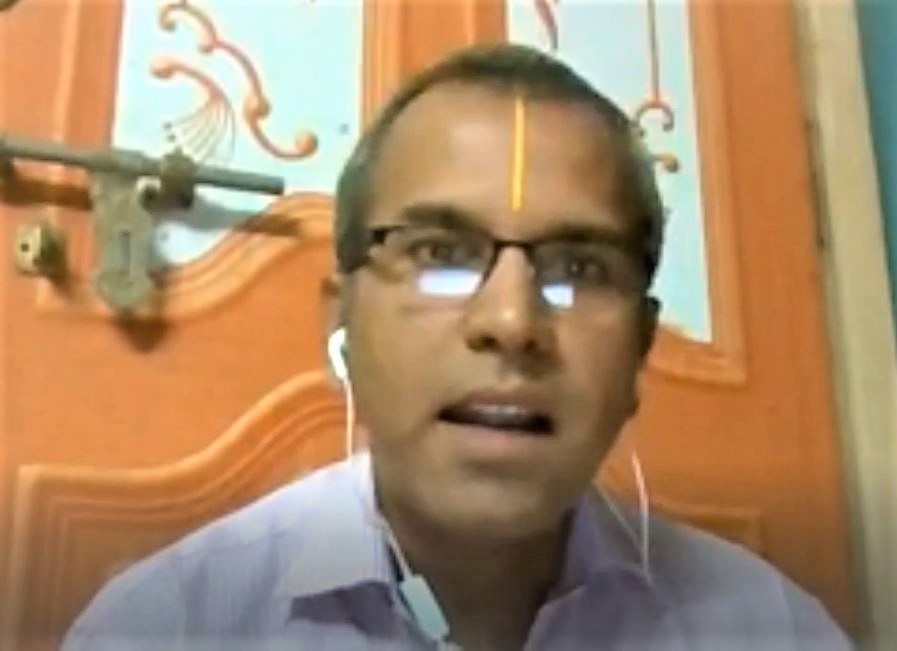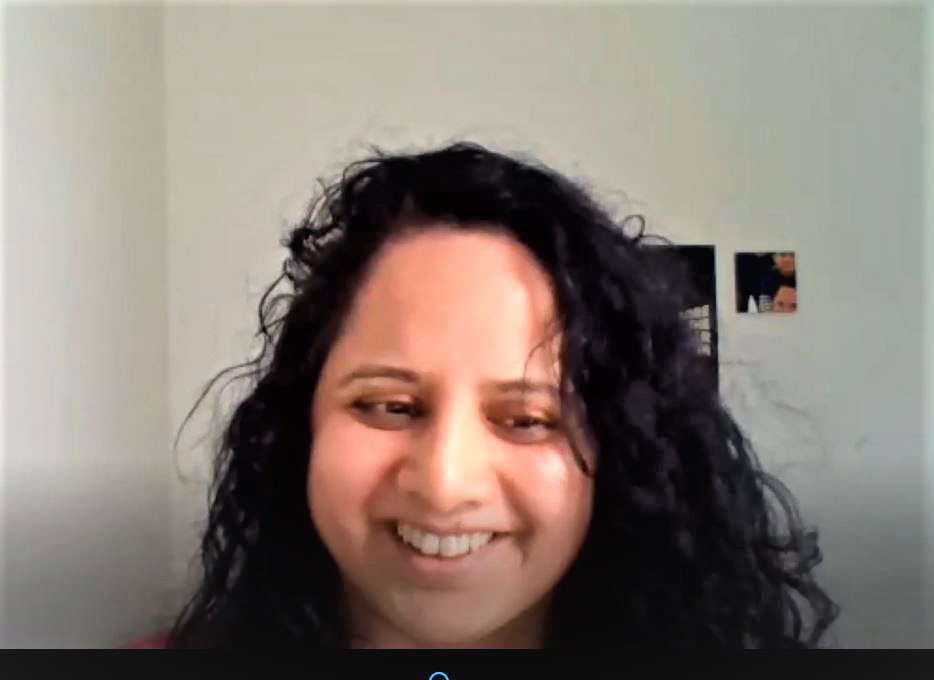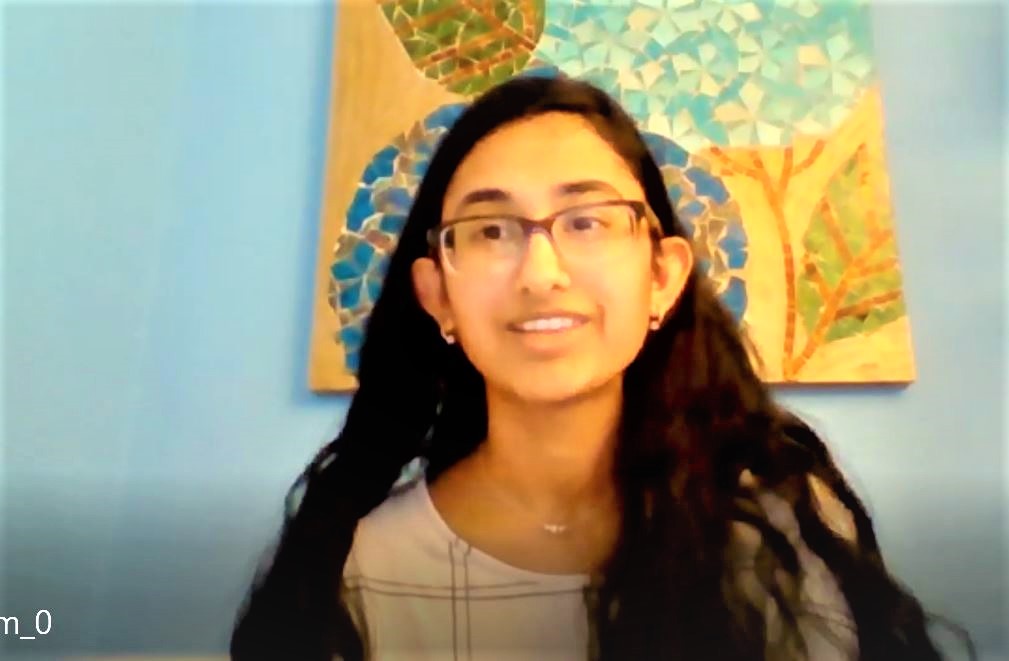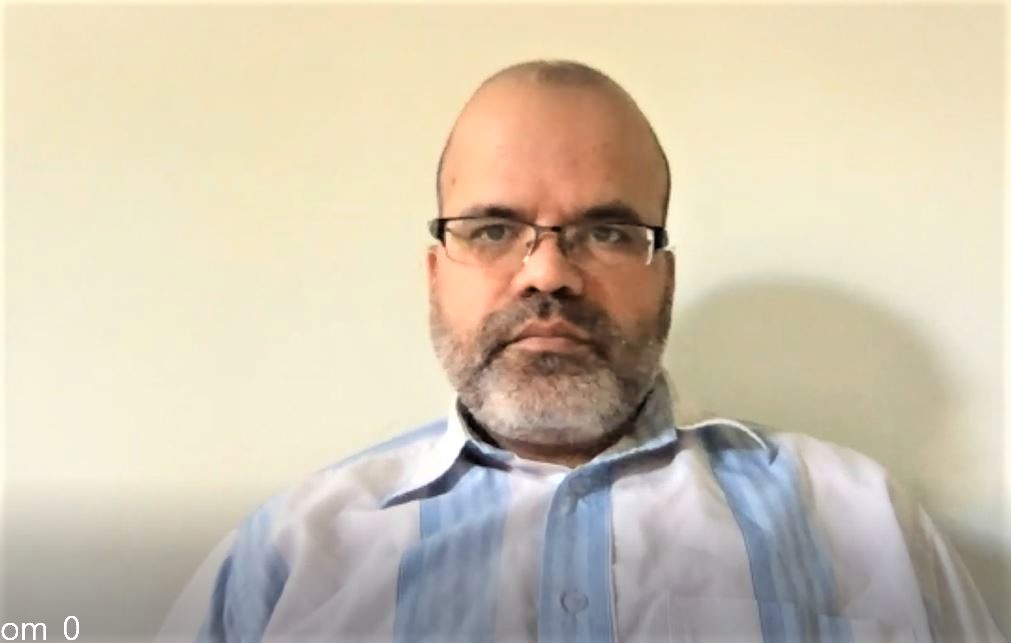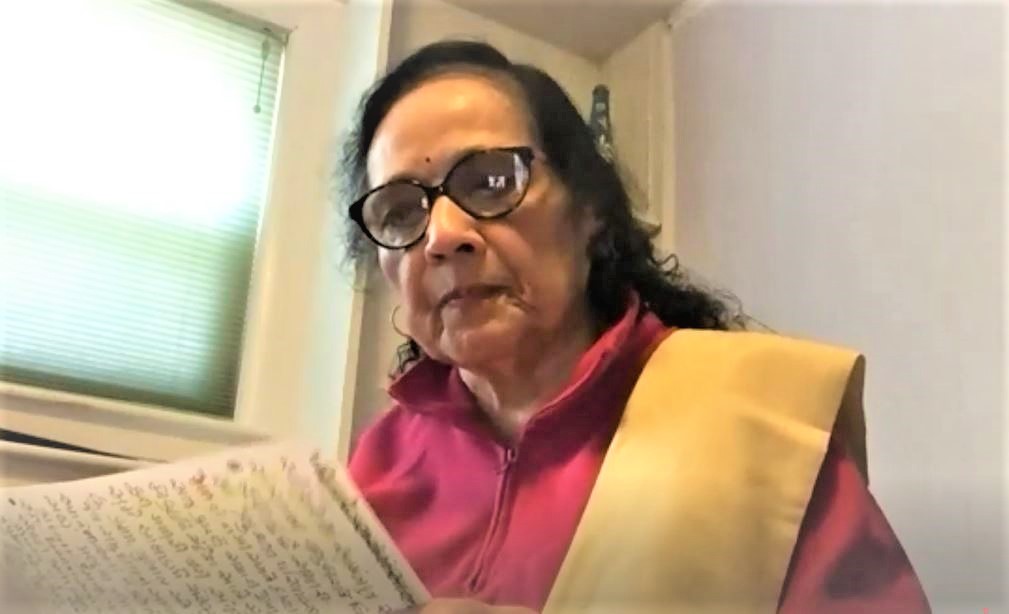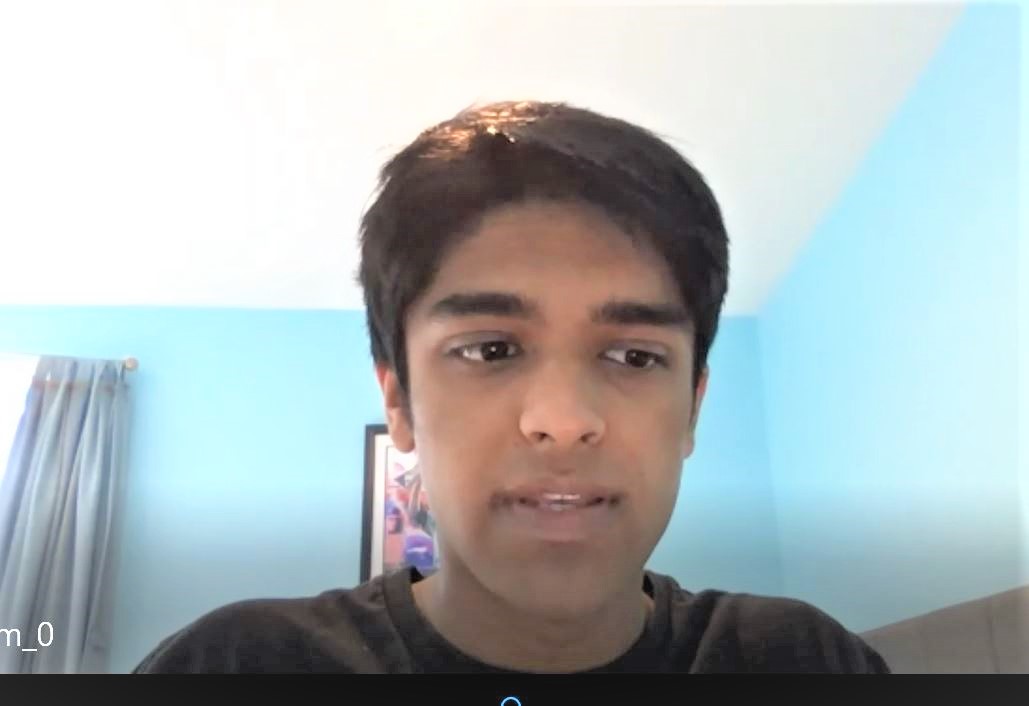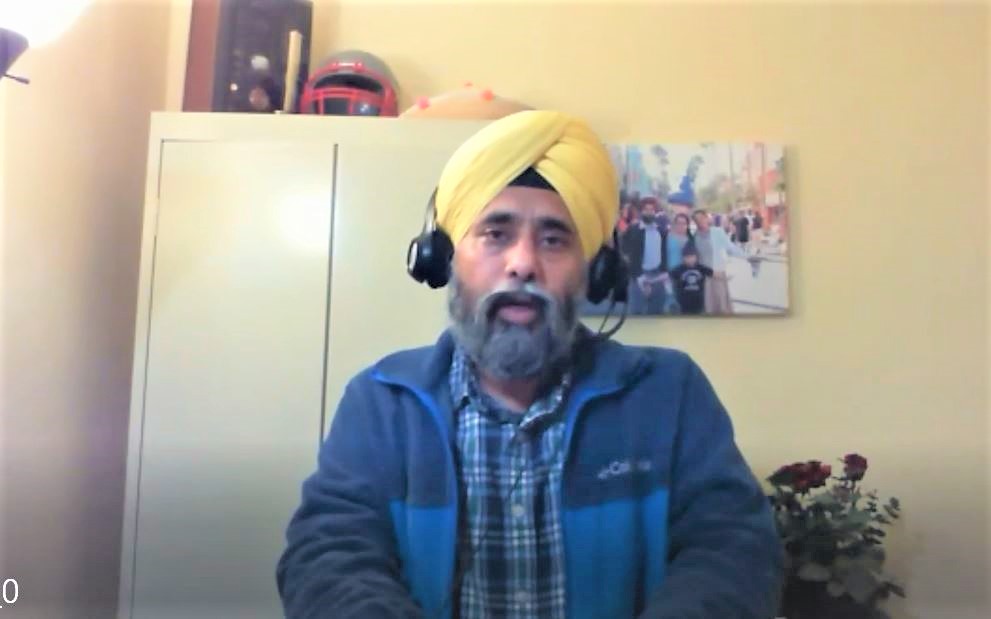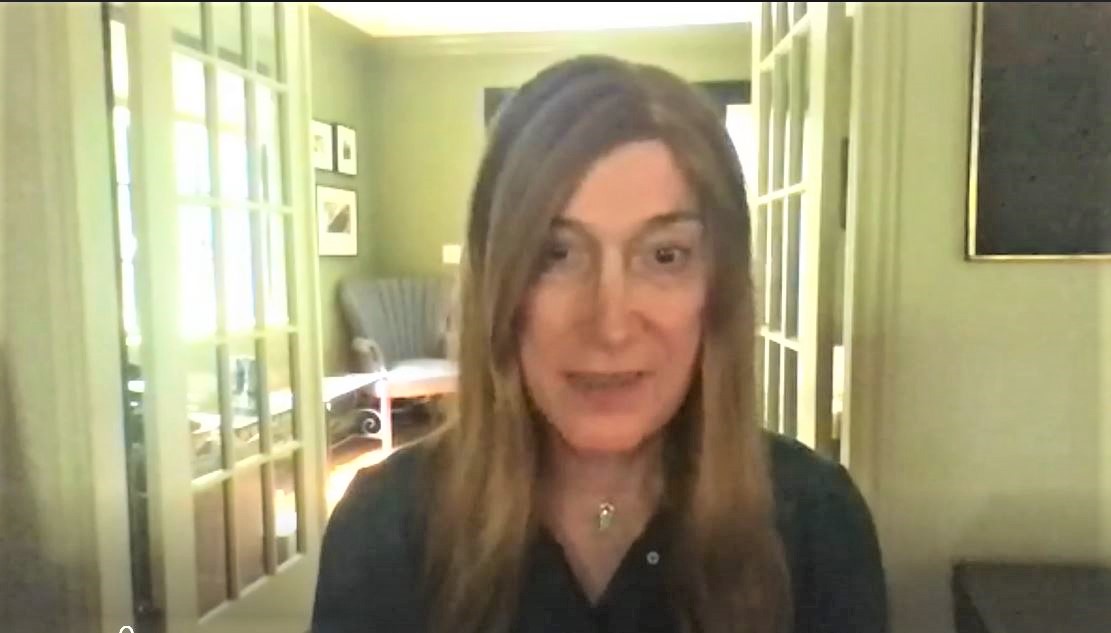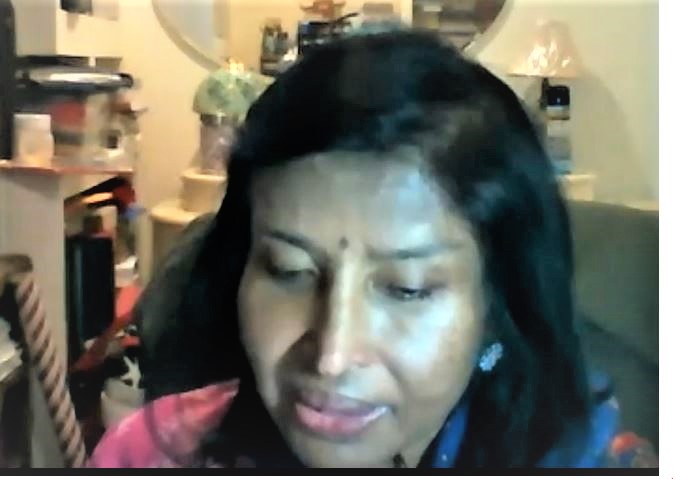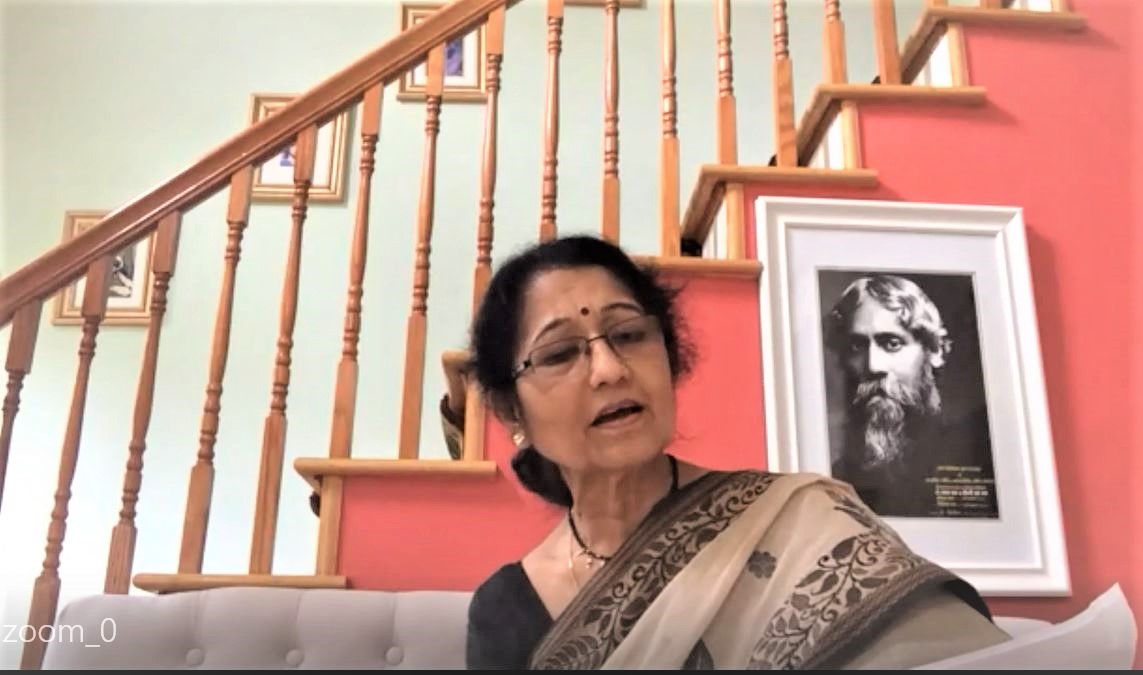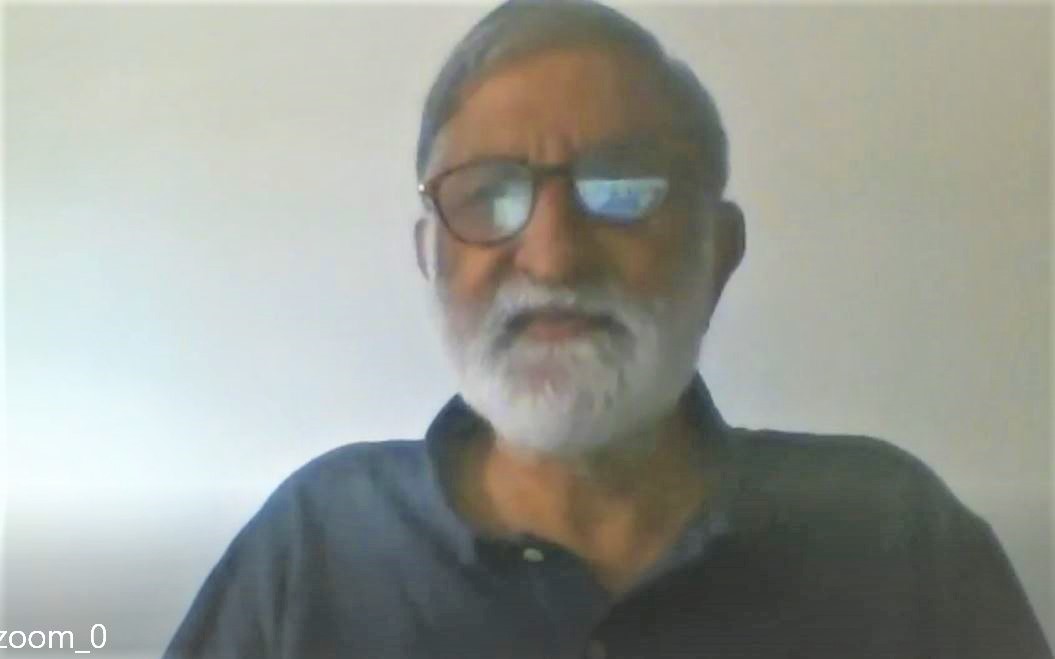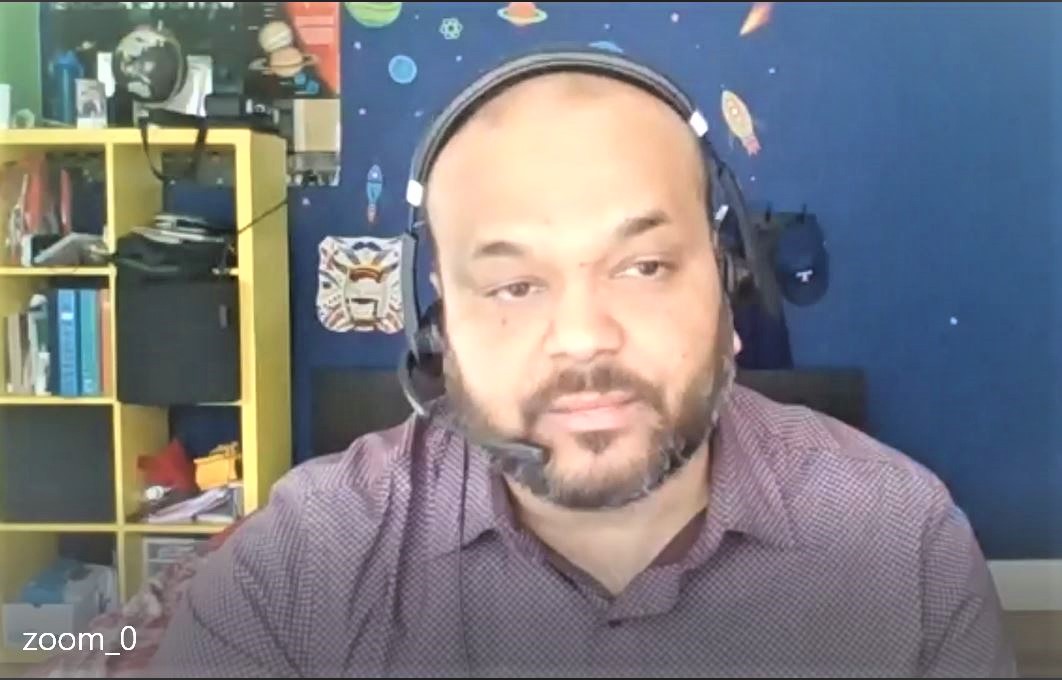Contribute
| Justice Is The Art Of Being Human! Poets Interpret 'Justice' In The World |
Geetha Patil
06/11/2020
Justice is the Art of Being Human! Poets interpret “Justice†in the World Report of the 24th Annual Harvard India Poetry Reading While the world is gripped with a strange virus restraining assembly, the members of South Asian Poets of New England (SAPNE) wondered if the punishment was man-made? Is it a nature’s curse back against abuse of her resources? Is it a manifestation of built-in erratic behavior of the human race? Justice is an abstract trait, the poets looked through their creative insight to analyze. It became a glorious afternoon of remote poetry hosted through the support of new innovative technology. Man attempted to go around nature, but in a positive way! Commenced in 1997, the India Poetry Reading has been hosted by Harvard University continuously every year. It is being supported by the South Asian Poets of New England since 2008. Mr. Selmon Refey and Ms. Meena Hewett of The Lakshmi Mittal South Asia Institute at Harvard University have helped in sponsoring the event in campus. Dr. Bijoy Misra of the Department of South Asian Studies at Harvard University acts as the Convener of the event. Mr. Chandu Shah has acted as the Co-Convener. The event was held on Sunday, May 17, 2020, 2 PM with the help Zoom video tools. Thirty poets participated. The languages used included Tamil, Gujarati, Bengali, Hindi, Urdu, Punjabi and English. Dr. Misra welcomed all on behalf of Harvard University and SAPNE. Every poet was requested to limit recitation in five minutes including a short interpretation in English. The meeting ended about 5 PM. The meeting became a sonorous warning against social injustice and a voice echoing nature’s call to man to restrain! Mr. Vasant Machwe, the retired Professor from India now residing in the US, opened the program with his poem entitled ‘नà¥à¤¯à¤¾à¤¯â€™. Presenting examples from the folk-legends and literature he lamented that the human race has failed to bestow justice to the victim in need. There could be a flaw in human thinking in being objective! Ms. Charlie Lindley, a Sanskrit scholar responded with a set of selected verses from the second chapter in the Bhagavadgita. One’s actions are local and one acts only through a cosmic principle. The justice is imperceptible to human eye. It is a liberated mind that leads to truth! Dr. Sajed Kamal, the poet and climate activist, recited his thought-provoking poem in English - ‘Time Out for Humans’. The most fundamental elements in a relationship is how the participants treat each other. It has consequences and responses. It raises the question of justice. The relationship between humans and the Earth has lost the balance and the Earth is responding! Dr. Nilam Kaushik, a young professor based in India, read a sweet Hindi poem ‘दो परिंदों के सवाल’ – a conversation between two birds1 Birds muse about the virus disturbing the normal life of the living creatures on this earth. Ms. Rekha Upadhyay, a grandmother and a teacher, read her poem in Gujarati – ‘પà«àª°àª•à«ƒàª¤àª¿àª£à«‡ પરિતાપ’. The poem described the complaints of the mother earth and her efforts to find justice. Can we be positive? Radjalou Pidha David, joined from Puducherry, India. with his poem in Tamil,’நீதி’. The old Tamil land has celebrated justice through popular culture and royal decrees. Justice is perennial. Amandeep Singh, one of the SAPNE organizers, read a poem in Punjabi etitled ‘ਸਾਨੂੰ ਇਨਸਾਫ਼ ਕਦੋਂ ਮਿਲ਼ੇਗਾ?’ History notes that many killers go unpunished. Justice to the oppressors can only come through people’s uprising and unity. Dr. Parmit Singh, a Bhojpuri poet and a Harvard scholar, recited his poem ‘नारी’ in Hindi. The poet observed that the society appears to exploit and harass women throughout history. Where is justice? Ms. Srabonti Bandyopadhyay read an English poem of her father Mr Amitava Ganguly, who lives in Delhi, India. The poem – ‘Blue Skies - Justice denied?’ A person stares at the open sky during a pandemic, waiting for a hospital bed , pondering whether his actions have caused nature to be harsh! Is justice denied forever? Ms. Neena Wahi, a retired teacher, recited a poem in Hindi, ‘कॅरोना की जंग जारी है शायद यही नà¥à¤¯à¤¾à¤¯ कहलाता है!’. The Corona pandemic has brought in justice to the environment that has been abused by us. It is recovering now. People are physically apart but not in their hearts. They do reach out to other. Possibly there is positivity! Mr. Mir Fazlul Karim, a geologist, reflected about a conversation with the Mother Earth in a Bengali poem ‘মাটির সাথে কথা বলি’. The mountains, rivers are exploited by people in the name of progress. We witness this injustice. We should remember that all is made of Mother Earth! Dr. Bijoy Misra, the Convener, recited a short ballad in English, ‘An Ode to Just!’. People interpret justice as to their convenience. Just could be the person who gives a hand in need. Mr. Preetpal Singh, a popular poet of satire, presented a Hindi poem, ‘बेइंसाफी’. Justice is not always there in society. Most events contradict themselves. Farmers die, landlords live. One aspires happiness, lives in misery! Mr. L. Sampath Kumar, a professor of Sanskrit in India, recited his Tamil poem, ‘இயறà¯à®•à¯ˆà®¯à®¿à®©à¯ நீதி’. Justice of nature is coming to us as a wake-up call in the form of the Corona attack. Nature is not there for exploitation by the greedy, but for sharing by all! Mr. Rajesh Tyagi, a Technology professional, recited his Hindi poem entitled, ‘नà¥à¤¯à¤¾à¤¯ की परिà¤à¤¾à¤·à¤¾ – समà¤à¥‹ तो डर कैसा?’ Justice has many manifestations, - God, truth, liberty, ideals, and more. It is a reflective mirror of the society. A righteous and unprejudiced life is the key to avert fear of justice! Mr. Jayant Dave, the veteran Gujarati poet, presented ‘સાત પૂંછડિયો ઉંદર અને નà«àª¯àª¾àª¯â€™. Justice is a seven-tailed mouse. It appears in many forms in the society. What is just at one time can appear unjust at another time! Mr. Anay Mehta, a graduating senior, presented his poem, ‘Loose Change’. The poet expressed distress observing brutality against innocent people. Nobody should be treated like “loose change!†Ms. Sunayana Kachroo, an established poet of Kashmiri origin, presented an Urdu poem, ‘कहाठथे हम जब?’ Where were we when forests and natural habitat of animals were destroyed in greed? When this is our own doing, should we deserve sympathy? Dr. Gouri Datta, a practicing psychiatrist, recited a poem in English with title ‘Conversation with Lady Justice.’ Justice courts no Mercy … Forgiveness is not in Court's domain. Ms. Chanchala Priyadarshini, an educator and teacher, read her poem ‘अनीति और अवधारणा’. There is injustice in perception! Our self-concept, the complete collection of all of our thoughts and feelings about ourselves, subconsciously influences how we behave toward others. Mr. Deva Koumarane-Villeroy could not be present. His Tamil poem ‘நீதி’ was read by Ms. Varalakshmi Ganassane from Paris. Justice is the mother tongue of human rights. Justice should prevail as both a basic human right and a means to protect nature and living beings. Dr. Rahul Ray, a Professor and SAPNE organizer, recited a poem entitled ‘আমরাই হনà§à¦¤à¦¾à¦°à¦•â€™. There is consequence to the rampant pollution we have created in the name of prosperity. People feel helpless when surrounded by the polluted land, sky, and the air. Nature is cursing! Mr. Amit Khare, a local professional, presented a Hindi poem ‘कौन दोषी नà¥à¤¯à¤¾à¤¯ किसका?’ Natural disasters abound these days, who is at fault for such a predicament? Mr. Maneesh Srivastava, a Hindi poet and a SAPNE organizer, recited his poem ‘विधि का विधान’. We do not have to overpower the nature! We need to observe the process of justice that is rising from the womb of nature in the form of Corona virus! Mr. Prem Nagar, a language and IT professional, read his poem, ‘नà¥à¤¯à¤¾à¤¯ की पà¥à¤°à¤•à¥ƒà¤¤à¤¿â€™. Natural justice impregnates nature in the world. Justice and injustice are artificial notions we created for us to co-exist. They are the individual’s point of view! Ms. Pranali Ashara, A High School junior, followed with her poem ‘The Crossroads’. Right path always filled with many ups and downs, is hard and scary. It gets brighter at the end. The wrong path looks smooth with few twists and turns. It is easy to follow but get blacker and harder. We choose! Ms. Swapna Ray, a poet and a musician, recited her poem in Bengali, ‘সোচà§à¦šà¦¾à¦°à¦¿à¦¤ নারী’. Women have started following the exemplar role models in the male dominated society. Many are succeeding in their professional and personal lives. At last some justice is blessed to them! Mr. Chandu Shah, A Gujarati poet and a SAPNE organizer, presented the poem ‘ધોબીઘાટ’. The washer-man and his wife talk about their life - where is social justice for the economically backward? Ms. Geetha Patil, the reporter at SAPNE, read her poem ‘Corona – The Healing Effect on Nature’ in English. Corona has changed our outlook towards life, business, and finance. She made us wake up to respect and love to the nature, trees, animals and birds. We must follow the mantra of “live and let live others in happiness.†As the last entry, the veteran Punjabi poet Jaspal Singh presented a satire entitled ‘नà¥à¤¯à¤¾à¤¯â€™. The poem was a comic commentary on the politicians who promised to provide a just society to the millions in free India. Only the rich have become richer and common man has suffered. A new day will dawn to make the change! Mr. Chandu Shah, Mr. Amandeep Singh and Mr. Rahul Ray took the lead in organizing the technology for the event. Dr. Bala Ganessane in Paris helped with some of the Tamil entries. Mr. Maneesh Srivastava helped in recording the event. The link is https://youtu.be/T4fMWOVMptY . There was a short review session where various participants expressed their delight with the event. Ms. Jamunabai Prakash, originally a student participant in 1997, exclaimed that the multiplicity of languages and tones in the event reminded her of nAda-brahma! SAPNE information is recorded in http://www.sapne.boston. The membership is open to all writers and poets. Four quarterly events are done in the year. You can join the organization by participating in an event. SAPNE is a sister organization of India Discovery Center http://www.indiadiscoverycenter.org
Nor Compassion ", she scolded,
" Justice is balanced like the Scales
And blind as I am blindfolded".
It is of higher grade
It is between Victim - Criminal
When all Atonement's made "
You may also access this article through our web-site http://www.lokvani.com/
